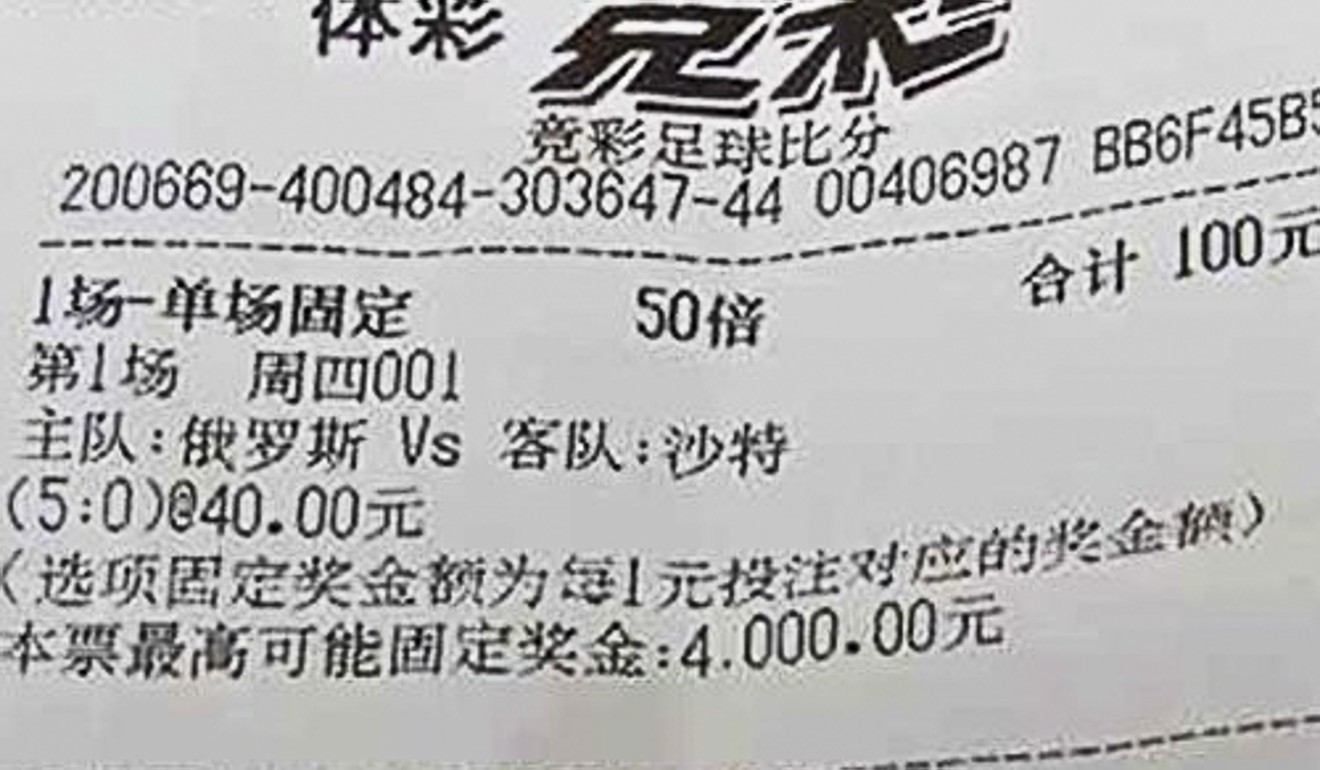
Chinese soccer fan’s World Cup winning bet turns sour after someone else claims her prize
Woman who successfully predicted a Russian victory in the tournament opener posted a photo of the winning slip on social media and found someone else had collected her payout
A soccer fan in northwest China who placed a winning bet on the World Cup lost out after someone else claimed her US$600 prize after she posted a picture of her betting slip on social media.
The woman, from Xian, the capital of Shaanxi province, had been invited by a friend to watch the tournament’s opener between Russia and Saudi Arabia last month and decided to buy a 100 yuan (US$15) ticket from the state-run sports lottery backing the hosts to win the game, China Business Daily reported last week.
While basking in the glow of Russia’s 5-0 victory, she posted a photo of the winning ticket on WeChat. But when she went to collect her 4,000 yuan prize the next day, staff at the lottery station told her that someone else had already collected the money.
After learning that the woman had posted a photo of the ticket on social media, the owner of the station suspected someone else might have claimed the prize using the code on the ticket.
The owner told the newspaper that according to the rules, a person can collect a prize as long as he or she provides the code on the winning ticket.
“But usually I insist on seeing the ticket itself. For those who present a photo of the ticket, I’ll try to recall if the person had indeed bought the ticket here, because I worry about disputes like this,” the owner told the newspaper.
But his memory had apparently let him down this time.

The management office of Xian’s sports lottery said last week that the woman had eventually managed to collect her prize. It said the station where she bought her ticket would be punished for giving the prize to the wrong person, without specifying the sanction.
For prizes below 10,000 yuan, lottery ticket owners are allowed to present a photo of their tickets if they have lost the original tickets, provided they can prove their identity, a staff member at the office said.
“When the person’s identity cannot be confirmed, he or she usually cannot claim the prize. But sometimes it is hard to judge,” the staff member said.
The police are trying to find who claimed the 4,000 yuan under the woman’s name.
Although most forms of sports betting are banned on mainland China, the country runs two official lotteries, one of which, the China Sports Lottery, does allow people to stake money on the outcome of selected sporting events.
Combined with the China Welfare Lottery, the state-run operation is now the world’s second-largest lottery after the United States, with a total revenue of 426.6 billion yuan in 2017.

